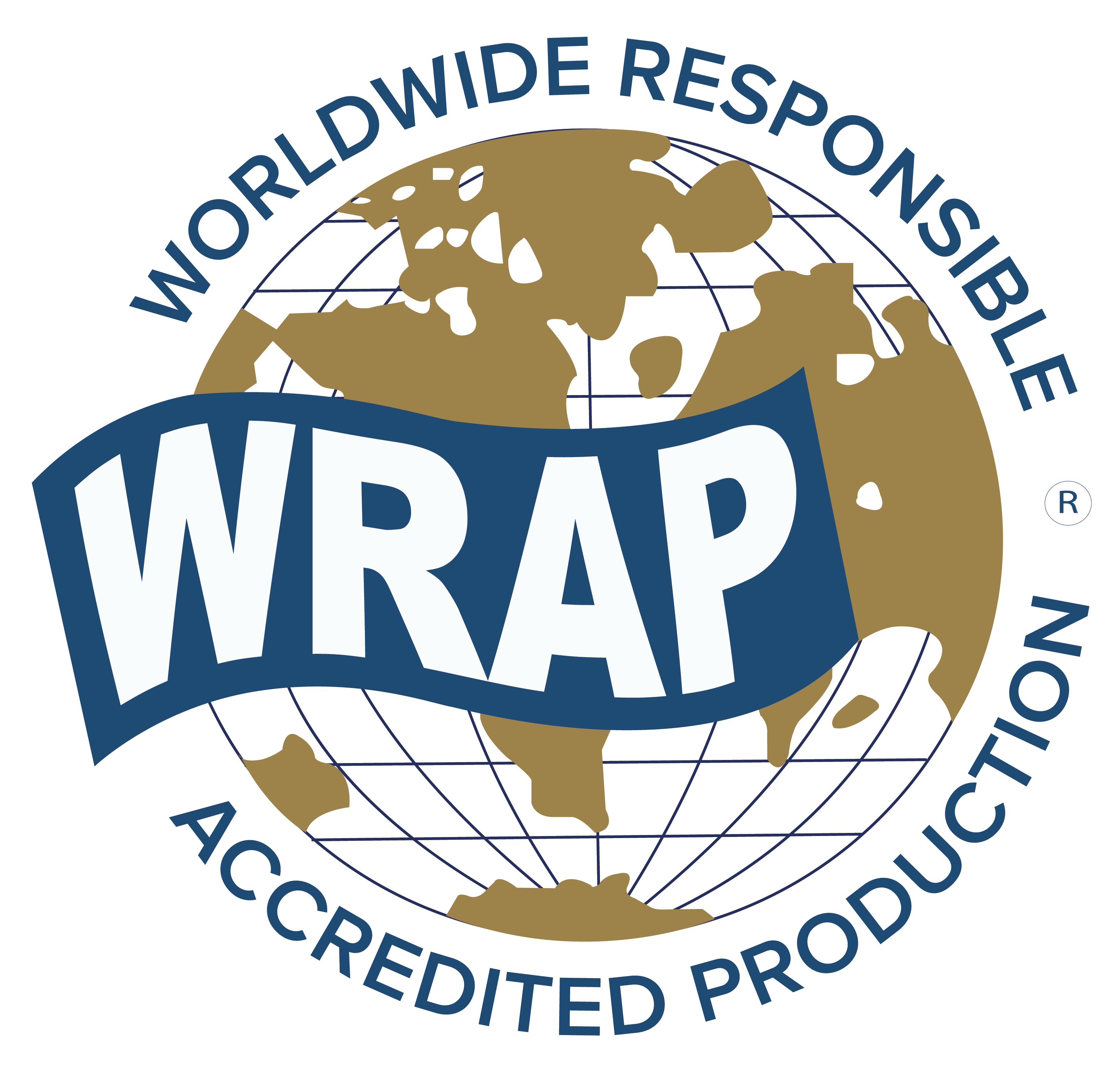Assessment, Training & Certification Services.
WRAP Certification – Ethical Manufacturing, Globally Recognized
What is WRAP Certification?
WRAP (Worldwide Responsible Accredited Production) is a globally respected, independent certification program that promotes ethical, lawful, humane, and safe manufacturing in the apparel, footwear, and sewn products industries.
It is the world’s largest facility-based social compliance certification program in this sector and is trusted by leading global brands, retailers, and buyers.
Why WRAP Certification is Important
In today’s market, consumers and international buyers demand that products come from socially responsible and safe workplaces. WRAP certification helps facilities demonstrate their commitment to:
Worker rights and fair treatment
Health and safety in the workplace
Environmentally responsible practices
Legal and ethical manufacturing standards
Key Benefits:
Earn credibility with global apparel brands and buyers
Strengthen compliance with labor and safety regulations
Expand opportunities in international markets
Build long-term supply chain trust
Reduce risks of reputational or operational issues
WRAP’s 12 Core Principles
WRAP certification is built on compliance with 12 fundamental principles, including:
Compliance with laws and workplace regulations
Prohibition of forced labor
Prohibition of child labor
Prohibition of harassment or abuse
Compensation and benefits compliance
Working hours compliance
Prohibition of discrimination
Health and safety standards
Freedom of association and collective bargaining
Environmental responsibility
Customs compliance
Security practices
Who Needs WRAP Certification?
WRAP certification is widely applicable for facilities in:
Garment and apparel manufacturing
Footwear production
Textiles and finishing units
Leather goods and accessories
Uniforms, sportswear, and workwear industries
WRAP Certification Process
The certification process generally includes:
Application Submission – Register the facility with WRAP
Self-Assessment – Complete the pre-audit self-assessment
On-site Audit – Conducted by a WRAP-accredited monitor
Corrective Actions – Address any non-compliance issues (if identified)
Certification – WRAP issues a certificate (valid for 6 to 12 months)
Renewal – Maintain standards and undergo periodic audits
Why WRAP Certification Matters
Provides global recognition for socially responsible manufacturing
Enhances supply chain acceptance with leading brands
Ensures continuous improvement in labor, health & safety, and environmental practices
Promotes sustainable, long-term growth in international markets
In summary:
WRAP Certification is a trusted standard for ethical and responsible manufacturing in apparel and related industries. It ensures compliance with international labor, safety, and environmental practices while building strong credibility with global buyers.
